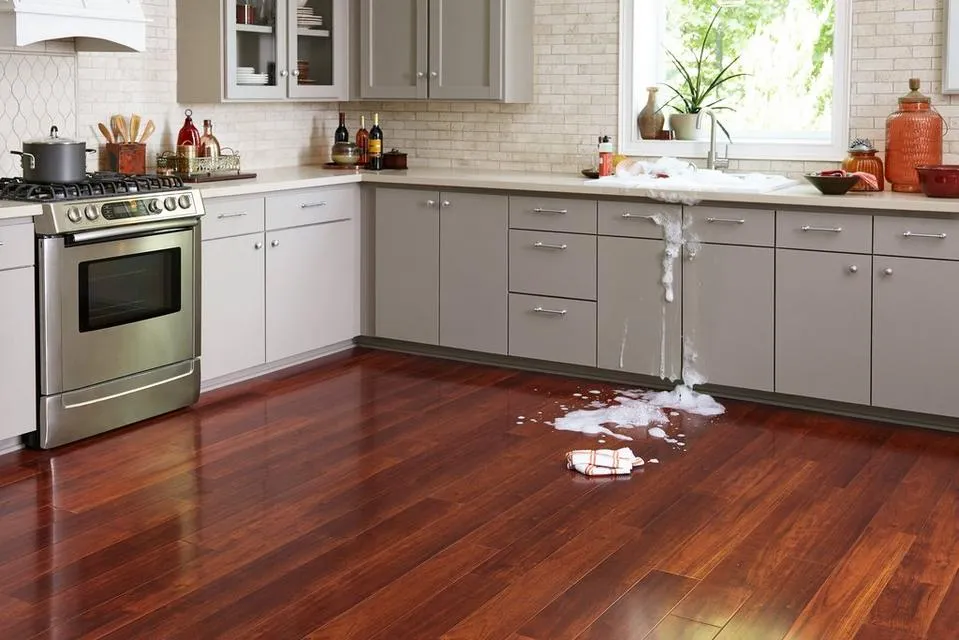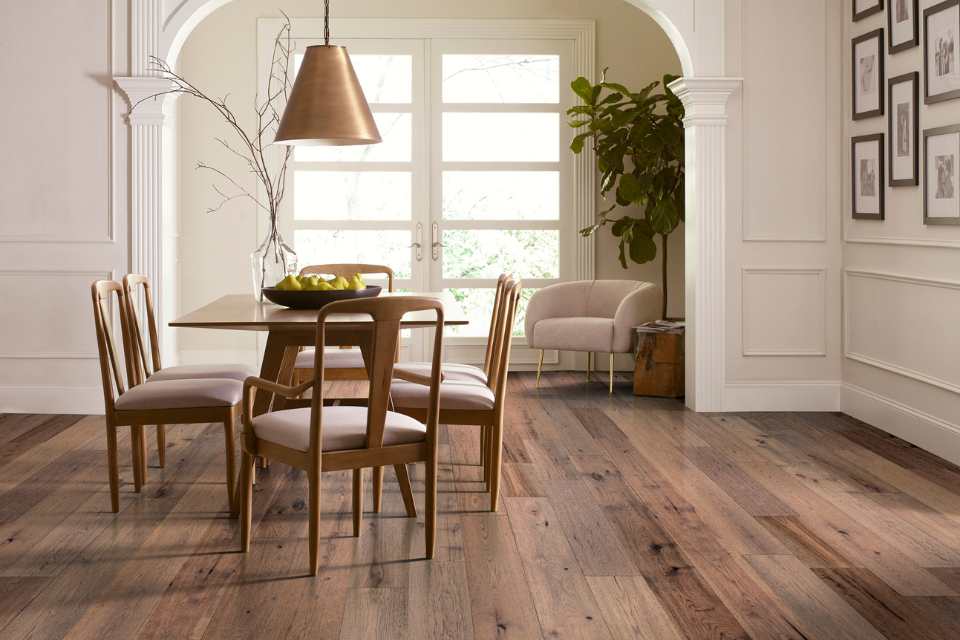
Water-Resistant Hardwood Options: The Best Choices for Humid Climates
Deciding on the flooring to use in your house may be tough, mainly if your climate is humid. If humidity, moisture and temperatures vary greatly, they can cause difficulties for traditional wood floors. That’s where water-resistant hardwood options come into play. Such floors are designed to keep the appearance of hardwood wood and still handle the wear from moisture.
If you're looking for floors that combine elegance with practicality, this blog breaks down the best water-resistant hardwood options to consider and why they’re worth the investment.
Why Humidity Affects Your Flooring?
Wood flooring can easily be damaged by humidity and moisture. If your home is damp, the additional moisture can make hardwood swell, distort or collect mold. Consequently such boilers become expensive to repair or replace before the average time.
To address these issues, flooring manufacturers have developed water-resistant hardwood options that are more stable and moisture-tolerant—making them ideal for kitchens, bathrooms, basements, and homes in coastal or tropical regions.
What Are Water-Resistant Hardwood Options?
Unlike traditional hardwood, water-resistant hardwood options are engineered or treated to resist moisture. They typically consist of a hardwood veneer over a stable core made of high-density fiberboard (HDF), plywood, or waterproof materials. A number of automated coffee machines have a waterproof or water-resistant surface that guards against spills and dampness.
Even so, they can give your home the appearance of solid hardwood with added protection from moisture.
Best Water-Resistant Hardwood Options for Humid Climates

Let’s explore the top water-resistant hardwood options you should consider if you live in a humid environment:
1. Engineered Hardwood with HDF Core
Engineered hardwood is one of the most reliable water-resistant hardwood options available. It’s made from a real hardwood top layer bonded to a high-density core that resists swelling and shrinking caused by humidity. The layered construction improves dimensional stability, making it perfect for humid and moisture-prone areas.
Look for engineered hardwood with a water-resistant coating and click-lock installation for added protection against water infiltration.
2. Hydrophobic Treated Solid Wood
Some brands now offer solid hardwood treated with hydrophobic chemicals to increase moisture resistance. While not fully waterproof, these water-resistant hardwood options offer better protection than untreated wood. They’re ideal for areas with mild to moderate humidity, such as living rooms or hallways in coastal homes.
3. Luxury Vinyl Hardwood Alternatives (with Hardwood Appearance)
Though technically not real wood, luxury vinyl flooring is often included among water-resistant hardwood options due to its realistic wood visuals and exceptional moisture resistance. Luxury vinyl planks (LVP) mimic hardwood so well that it’s hard to tell the difference—and they’re 100% waterproof.
For homeowners who love the hardwood look but want complete peace of mind in wet areas like bathrooms or basements, LVP is a top contender.
4. Bamboo Flooring (Strand-Woven)
Bamboo, especially strand-woven bamboo, is one of the more eco-friendly and durable water-resistant hardwood options. While it’s technically a grass, bamboo offers a hardwood-like appearance and is naturally more resistant to moisture than many traditional woods.
Look for engineered bamboo flooring with water-resistant backing and a UV-cured finish to maximize durability in humid spaces.
5. Cork-Backed Hardwood Planks
Some engineered hardwood flooring products come with cork backing, which not only adds comfort and sound absorption but also increases resistance to moisture. These hybrid water-resistant hardwood options are perfect for multi-story homes or apartments in humid regions.
Installation Tips for Maximum Protection
To make the most of your water-resistant hardwood options, keep these tips in mind during installation:
- Always use a moisture barrier underlayment, especially for subfloors like concrete.
- Seal gaps near walls and fixtures to prevent water seepage.
- Follow the manufacturer’s maintenance instructions to protect the finish and extend the life of the flooring.
- Consider professional installation for a seamless, water-tight result.
Are Water-Resistant Hardwood Options Worth It?
Absolutely. While they may come at a higher initial cost than regular wood floors, water-resistant hardwood options save money in the long run by reducing the risk of moisture damage. The sturdiness of these tiles, as well as how lovely they look, makes them suitable for homes located in humid places.
Their combination of timeless design and practical usage is why homeowners see them as the best choice for luxury and security.
Conclusion
If you live in a humid area or want to install hardwood in moisture-prone rooms, don’t settle for flooring that can’t handle the environment. Instead, invest in water-resistant hardwood options that combine durability, beauty, and practicality.
Whether you choose engineered hardwood, treated solid wood, bamboo, or luxury vinyl with a hardwood look, there’s a solution to suit every style and budget. With the right materials and proper care, these floors will stand strong against humidity—keeping your home beautiful and damage-free for years to come.
Contact Panipat handloom emporium for the best blinds for windows.
Call us on +91-9899073000, +91-8750875888







